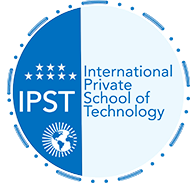In a rapidly advancing technological world, it has become essential for educational systems to adapt to these changes by adopting digital technologies. Morocco, like many other countries, is striving to benefit from this technological revolution in the education sector to modernize and improve its educational system, especially in the face of modern-day challenges. Digital education is a crucial step toward improving the quality of education and expanding access to it, particularly in remote areas. However, despite the numerous opportunities this transformation offers, several challenges stand in the way of Morocco’s educational system in its quest to digitize education. In this article, we will explore the main opportunities for digitizing education in Morocco, as well as the challenges that may hinder this transformation.
1. Opportunities for Digitizing Education in Morocco
The Moroccan government aims to modernize its educational system through several initiatives focused on integrating technology into classrooms. One of the key initiatives is the “National Strategy for Educational Development,” which includes various measures to improve education quality and expand access to education using digital tools.
Government Initiatives and Development Programs
In recent years, the Moroccan government has been implementing projects related to digital transformation in education, such as the “Development of Digital Education in Schools” project, which aims to equip schools with digital tools and train teachers on how to use these technologies. Additionally, the Ministry of National Education launched several online platforms, such as “Distance Learning Applications” during the COVID-19 pandemic, which helped ensure that education continued. This demonstrates the government’s commitment to leveraging the opportunities provided by digitization.
Source: Ministry of National Education, Morocco
2. Challenges Facing the Digitization of Education in Morocco
Despite the noticeable progress in the field of digital education, there are several challenges hindering the development of this sector in Morocco, including:
The Digital Divide
There is still a significant disparity in access to technology between different regions in Morocco, whether in major cities or rural areas. In large cities, advanced infrastructure supports the use of digital tools, whereas in remote areas, students and teachers face shortages in technological equipment and lack reliable internet connectivity. This gap in access to technology hinders equitable opportunities for digital education for all students across Morocco.
Source: UNESCO – The Digital Divide and Education
Adapting to Technology
Many schools and teachers in Morocco require intensive training to effectively use digital tools. A significant number of teachers lack the necessary digital skills to use modern educational platforms effectively. Additionally, adapting to new teaching methods that heavily rely on technology requires substantial time and effort.
Source: World Bank – Education Technology and Teacher Training
Infrastructure Challenges
Although efforts have been made, the technological infrastructure in many Moroccan schools is still insufficient to effectively support digital education. Most schools lack the necessary equipment, such as computers and tablets, to provide a fully integrated learning environment for students. Moreover, internet connectivity in many areas remains slow or unstable, further hindering the learning process.
Source: The World Economic Forum – Infrastructure Challenges in Education
3. How Can the Digital Education Experience in Morocco Be Improved?
To enhance the digital education experience in Morocco, the government and concerned stakeholders must take several practical steps to improve the current situation. Some of these steps include:
Improving Digital Infrastructure
Morocco must work on enhancing its digital infrastructure in all schools, especially in remote areas, by providing modern and fast technological equipment and improving internet connectivity to ensure that all students can equally benefit from digital education.
Source: International Telecommunication Union (ITU) – ICTs and Education
Ongoing Teacher Training
Continuous training programs must be provided for teachers to ensure they are able to use technology effectively in the teaching process. Training should include the use of distance learning platforms, interactive learning tools, and online performance evaluation methods, which will enhance teachers’ competence in handling digital transformation.
Source: EdTech Magazine – Teacher Training and Digital Learning
Encouraging Public-Private Partnerships
There should be greater collaboration between the government and private companies to provide innovative solutions in digital education. These solutions could include developing local learning platforms, offering educational content that aligns with Moroccan curricula, and making modern devices and technologies more accessible to students across the country.
Source: OECD – Public-Private Partnerships in Education
4. Conclusion
Digitizing education in Morocco represents a significant step toward improving the quality of education and expanding access to learning opportunities throughout the country. However, in order to achieve this goal, the government and stakeholders need to work on overcoming challenges related to the digital divide, improving technological infrastructure, and providing ongoing teacher training. If these obstacles are addressed, digitization can significantly contribute to achieving inclusive and advanced education for all in Morocco.
Sources:
- Ministry of National Education, Morocco
- UNESCO – The Digital Divide and Education
- World Bank – Education Technology and Teacher Training
- The World Economic Forum – Infrastructure Challenges in Education
- International Telecommunication Union (ITU) – ICTs and Education
- EdTech Magazine – Teacher Training and Digital Learning
- OECD – Public-Private Partnerships in Education
 International Private School of Technology المدرسة الدولية الخاصة للتكنولوجيا Private School مدرسة خاصة للتكوين المهني
International Private School of Technology المدرسة الدولية الخاصة للتكنولوجيا Private School مدرسة خاصة للتكوين المهني





